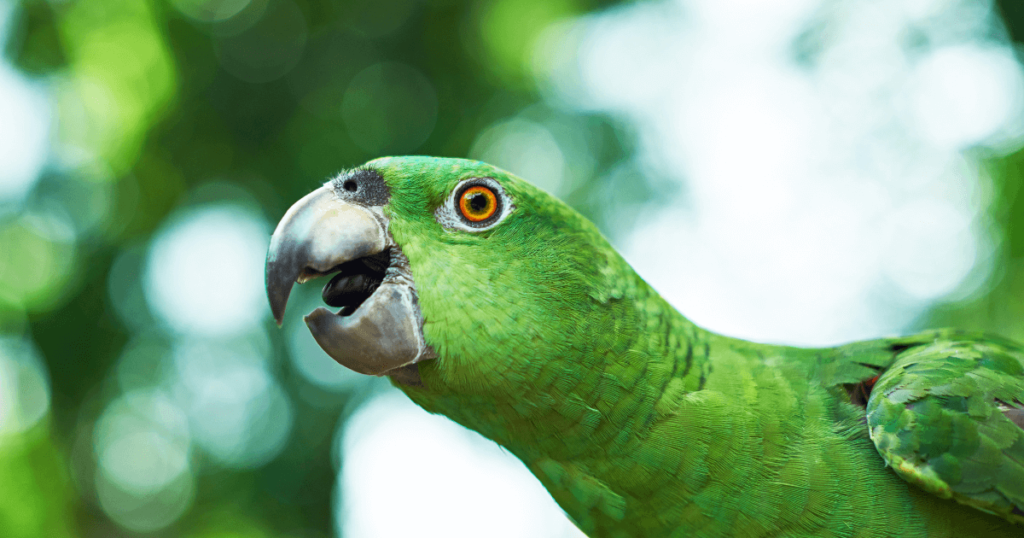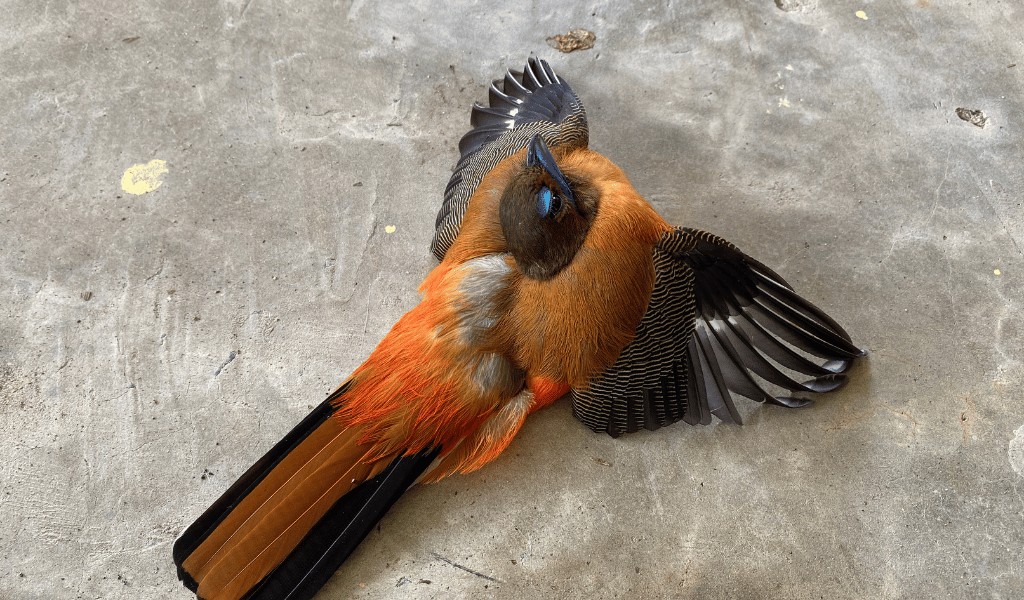Introduction
Infections of the avian respiratory system are a major worry for both bird owners and enthusiasts. Similar to people, birds are susceptible to a number of respiratory conditions that can negatively affect their general health and wellbeing. For our feathered companions to recover quickly, it is essential to recognize the signs and comprehend the possible treatments. We will examine a variety of efficient treatment solutions for avian respiratory diseases in birds in this thorough guide, covering both holistic and conventional medical methods.
Table of Contents

Recognizing Avian Respiratory Diseases
Avian respiratory infections: what are they?
Ailments that damage a bird’s respiratory system are known as avian respiratory infections. Numerous pathogens, including bacteria, viruses, fungi, and parasites, are capable of causing these diseases. Birds’ highly sensitive respiratory systems can become weakened and cause serious health problems if they are not promptly and adequately treated.
common avian respiratory illnesses
Numerous respiratory diseases can affect birds. The following are some of the most typical:
- Avian Influenza : Also referred to as bird flu, avian influenza is a very contagious viral infection that primarily affects birds but can also occasionally infect people. It can cause severe respiratory discomfort and increase bird populations’ mortality rates.
- Psittacosis is a bacterial ailment brought on by the bacterium Chlamydia psittaci, often known as parrot fever. Several bird species, including parrots, parakeets, and cockatiels, are susceptible. Humans can contract psittacosis, which manifests as flu-like symptoms.
- A fungal infection known as aspergillosis is brought on by the Aspergillus species. Through the inhalation of environmental fungal spores, birds can acquire this ailment. Respiratory distress and other difficulties can result from aspergillosis, which can also impact the respiratory system.
- Mycoplasmosis: The Mycoplasma genus is responsible for the bacterial illness known as mycoplasmas. It frequently affects poultry birds and can lead to joint inflammation, respiratory problems, and decreased egg production..
Recognizing Avian Respiratory Infections’ Symptoms
The symptoms of avian respiratory diseases can vary. Recognizing these signs is essential for giving sick birds prompt and effective treatment. Typical warning signals to watch out for include:
Respiratory distress symptoms
The following symptoms could appear in birds who are having respiratory problems:
- breaths that are labored or breathe quickly
- breathing with the mouth open or panting
- Tail bobbing
- wheezing or gurgling noises made during breathing
Behavioral changes
Avian respiratory infections can also cause behavioral changes in birds, including:
- Lethargy or a decline in activity
- Reduced appetite
- Weight loss
- decrease in vocalization
Physical symptoms
Physical symptoms associated with the infections may include:
- a runny or discharged nose
- red or swollen eyes
- coughing or sneezing
- Fluffed-up feathers
- difficulty balancing or perching
It is crucial to get medical help right away if you see any of these signs in your bird. The likelihood of successful treatment and recovery can be significantly increased with early intervention.
Options for Effective Treatment
Combining holistic strategies with conventional medical methods can be successful in the treatment of avian respiratory diseases. Let’s look at a few of these possibilities:
Holistic strategies
Holistic treatment focuses on promoting the bird’s general health and wellbeing. Depending on how severe the infection is, these techniques can be combined with medical care or utilized on their own. Here are a few holistic treatment possibilities:
Using Aviterium Immunology Respira-O Drops: Recommended Dosage
It is crucial to adhere to the suggested dosage guidelines while using Respira O Drops as part of your bird’s respiratory care. 6 drops of Respira O Drops mixed with 100 ml of water constitute the recommended dosage. Your bird should receive this diluted solution daily for six to seven days.
Use a calibrated dropper or syringe to extract the necessary number of drops to guarantee precise measurement. Make sure to thoroughly blend the drops with the prescribed amount of water. It is crucial to remember that the diluted solution should always be made from scratch before each dose.
Use a clean, suitable means, such as a syringe or a water dispenser made for birds, to give your bird the diluted solution. Throughout the course of the treatment, keep an eye on your bird’s reaction and look for any changes in their respiratory complaints.
It is important to keep in mind that dosage recommendations may change according on the species, age, and general state of health of the bird. Therefore, prior to beginning any treatment plan, including the use of Respira-O Drops, it is highly recommended that you speak with an avian veterinarian. The dosage and treatment plan will be customized to the unique requirements and conditions of your bird after consulting with a medical practitioner.
In conjunction with expert veterinary care, proper administration and adherence to dosage recommendations can improve the general health and wellbeing of your bird companion.
Steam treatment
In birds, steam therapy can help reduce discomfort and relieve congestion. Use a humidifier or drape a warm, moist towel over the bird’s cage to create a steamy atmosphere. The wet air can facilitate easier breathing by calming the respiratory system.
Nebulization
Nebulization entails using a nebulizer to produce a tiny mist of medication. The bird then directly attacks the system by inhaling this spray. Veterinary-prescribed bronchodilators, antifungal drugs, and antibiotics can all be given via nebulization.
Medical procedures
Medical therapies could be required in severe cases or when holistic techniques fail to produce the intended effects. The following are a few typical medical procedures:
Antibiotics
Veterinarians frequently recommend antibiotics to treat bacterial illnesses. Depending on the type of infection and susceptibility, a specific antibiotic will be recommended.
Anti-fungal drugs
Antifungal drugs may be used for fungus-related respiratory infections including aspergillosis. These drugs boost the bird’s recuperation by stifling the growth of the fungus-causing infections. It’s crucial to adhere to the veterinarian’s recommendations for dose and treatment duration.
Prevention Techniques
Maintaining your birds’ health and wellbeing requires taking preventative measures against avian respiratory diseases. Here are some steps you can do to prevent this:
Keep the environment tidy.
Clean and sanitize the bird’s living space frequently, including the cages, perches, and food bowls. This lessens the possibility of pathogen accumulation and transmission. To avoid any chemical residue that could damage birds, choose cleaning products that are suitable for avians and make sure to thoroughly rinse everything.
Place fresh birds in quarantine.
It is essential to quarantine new birds for some time before adding them to your current flock. Before allowing the incoming birds to contact with your existing birds, quarantine enables you to watch them for any indications of infections or other ailments. This safeguards the health of the entire flock and aids in the prevention of illness transmission.
Proper nutrition
Maintaining a strong immune system requires feeding your bird a balanced diet that satisfies all of its nutritional needs. A healthy bird has stronger defenses against diseases and infections. To ensure that your bird’s diet is adequate and matches their specific needs, speak with an avian veterinarian or avian nutritionist.
Conclusion
The health and wellbeing of our feathered friends can be substantially impacted by avian respiratory diseases. The key to their recovery is recognizing the signs, getting immediate veterinarian care, and putting the right treatments in place. Maintaining a clean environment and taking preventative steps can help reduce the incidence of respiratory infections in birds, whether using natural ways or medicinal treatments. We can support the healthy and happy lives of our avian companions by giving them the proper care and attention.

